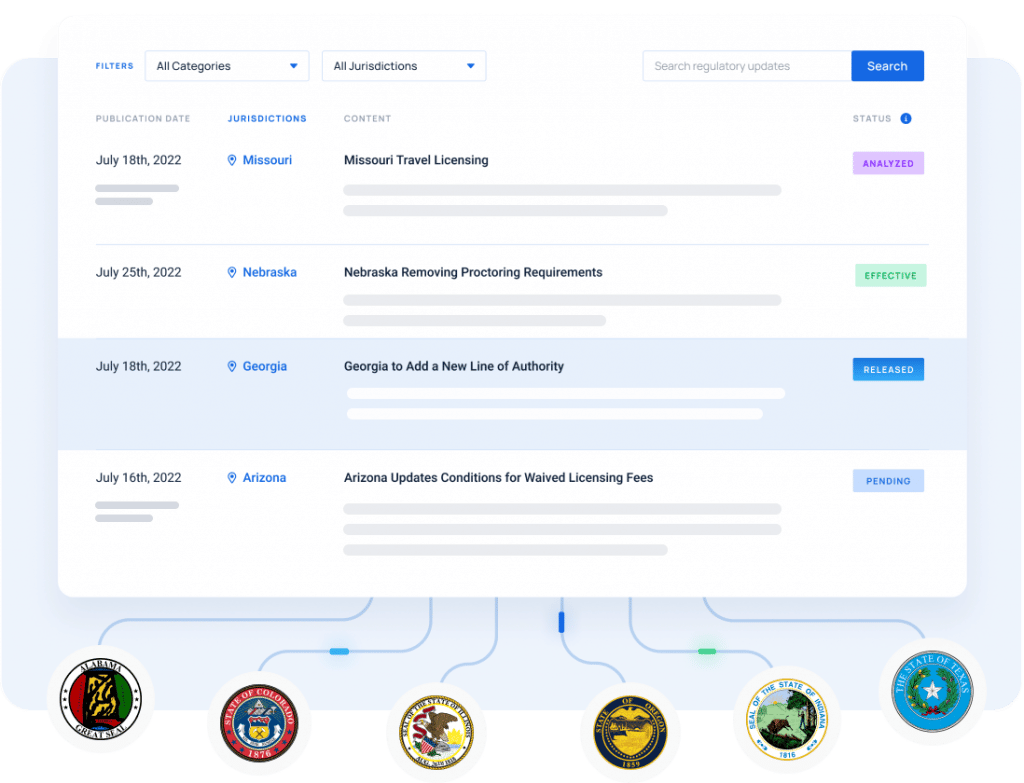Compliance Library ©
Insurance is mostly regulated on a state-by-state basis, with each state and U.S. territory determining their own legal standards and procedures. Here you can find state-specific information such as department of insurance contacts; read FAQs about licensing, carrier appointments, and Just-In-Time requirements; and stay up to date with relevant articles and blogs.
Comparison Table
With AgentSync’s 50 State Summary Table, we’ve taken the top questions concerning licensing, appointments, adjuster, and business entity management and set them in a comparative grid across the states and territories. Have an at-a-glance understanding of how each state handles appointments or licensing.
Get access to the 50 State Summary Table
Make Sure You Don't Miss a Regulatory Update
For more on regulatory evolution and emerging market trends, subscribe to the AgentSync thought-leadership newsletter

Upcoming Changes
New Jersey Company Issue Date Display
Effective March 12, 2026, New Jersey will start displaying the Company and Line of Business Issue dates on the Producer Database.
District of Columbia 2026 Company Appointment Renewals
Effective March 4, 2026, District of Columbia company appointment renewal invoices will be available for payment from March 4, 2026, through May 31, 2026. The termination deadline is February 24, 2026. The cost is $25 per appointment per company.
Ohio TPA Expiration Fee Updates
Effective March 12, 2026, Ohio will update the TPA late fee for applicants. For every month past the expiration date, the cost will be $25 cheaper.
California Reminder 2025 Annual Tax Returns Due
Posted January 15, 2026, the Surplus Line Association of California posted a reminder that 2025 annual tax returns are due on or before March 2, 2026. Please see the attachment for more information.

